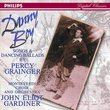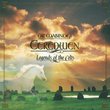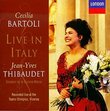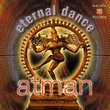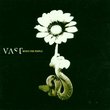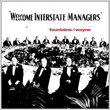| All Artists: Howard Skempton, John Tilbury Title: Well, Well, Cornelius Members Wishing: 0 Total Copies: 0 Label: Sony Release Date: 2/20/1996 Genre: Classical Style: Number of Discs: 1 SwapaCD Credits: 1 UPC: 074646648223 |
Search - Howard Skempton, John Tilbury :: Well, Well, Cornelius
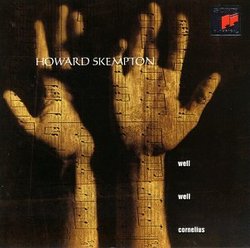 | Howard Skempton, John Tilbury Well, Well, Cornelius Genre: Classical
|
Larger Image |
CD DetailsSimilarly Requested CDs
|
CD ReviewsBeautifully arresting piano music,minimal with a heart Rachel Abbinanti (tusai1@aol.com) | Chicago | 08/08/1999 (5 out of 5 stars) "Howard Skempton's musical language has discovered a beauty, a simplicity, but one that engages a large pallette of sound imagination, in that these various pieces always evoke always suggest different images. His compositions are minimal in a minimal way, meaning every note is painstakingly thought about, its placement, its conception where it sits on the piano,its register, its timbre,its length. For his piano music here, he relies almost exclusively on the rolled arpeggiated sonority, yet he finds himself there,by breaking a familiar pattern,adding a low tone outside the middle register thereby disrupting the melodic contour then nothing ever grows stale. Skempton knows how to manipulate time, and when his work is over, it never overspends itself within its durational frame. The various "Preludes" here are all the same gesture, broken chords, very gentle and disarming in a three-eight meter until the "Fifth Prelude" where a five-eight takes over with a jewel-like B-flat placed. Then not until the "Seventh Prelude" is the proceedings altered to a fanfare-like six-sixteenth,sometimes collecting a interval of a third or fifth to alter the sonority minimally. The static quality of the "preludes" I suspect are an aesthetic plan to interject the freer "interludes" which exhibit early Feldmanesque chords played indeterminately,not bound by a strict time sense, only that each chord is 2 seconds duration. This makes for a neat concise miniature dialogue. I don't ever envision playing the "preludes" consecutively, that would be taxing the frame,in that their static gesture doesn't travel well. Like seeing twins and determining what the nuance of facial differences exist,or discovering leaves which have an identical shape,something fractals have taught us. But then Skempton I suspect wanted to see how far he could push his creative frames in writing almost identical preludes thereby subverting their historical reference,as dramatically contrasting pieces as Chopin's or Debussy's celebrated sets.When Skempton does venture too close to tradition his imagination seems on hold,ot stymied. The "Variations" here are weak and labored,with chromatic movement which doesn't seem within the Skemptonian universe of gesture. "Postlude" subtitled "the keel row" is again a one-page short work and indeed the most beautiful piece here. His music is quite old,in that he has been writing music like this since the early Seventies. This music may remind you of the New Age music, with its incessant surface of artlessly conceived ways of extending a harmony,only with cascades of notes that are actually arbitrary. Skempton is the opposite in that he is a craftman and tone-painter, wanting the listener to engage within his beautiful music." Pure sensitivity,and committment to piano timbre& concept Rachel Abbinanti (tusai1@aol.com) | 03/21/1999 (5 out of 5 stars) "John Tilbury has served the avant-garde well, along with Cornelius Cardew they brought the whole of American music to England. Remember England, the scene in the early Sixties was bland conservatism, something still prevalent today. Tilbury has been known to warm-up the most coldly abstracted pieces the avant-garde has produced. But the turn came in the late Sixties when a renovation of conceptual freedom extended to the political. This meant writing music for those who can use it and need it. The avant-garde (Cage Stockhausen,Boulez) grew elitist, also another politics emerged which marginalized composers and performers. The Scratch Orchestra in London was a very immediate response to this. And Howard Skempton was a founder. Skempton's music returns to what the avant-garde never did,to the human spirit, to directness,to melody yet maintaning a committment to conceptual freedom ( a Cage holdover) and the pure quality of sound. Here this CD traverses Skempton's career. 'Durham Strike" from the mid-Eighties is a folk song set in rich blankets of sound,countrpuntal, yet transparent, Tilbury has played this music all over Europe,so he is well-seasoned and brings a depthness whenever the music needs it, or simply allows the pure beauty to fullfill itself."Well,well Corneslius" you may have guessed is a touching yet distanced tribute to Skempton teacher mentor. You will find this music absorbing,sustaining, and nourishing, unlike the avant-garde similar to an elaborate dinner setting where the food never comes. Here you get all you can absorb."
|

 Track Listings (44) - Disc #1
Track Listings (44) - Disc #1
